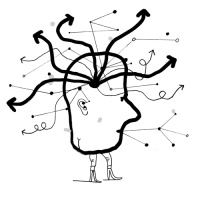Voxpop
At an event last week, Peter York asked whether the creative industries can really save us in the recession, or whether this idea was just an example of ‘British self-delusion’. What do you think, and why?

The delusion is that the creative industries are uniquely creative. Many are becoming less like places where creativity happens and more like repeat-order service businesses, spewing out thin solutions and clichés. There’s little doubt that innovation and technology, brought to life by design, will stem the recession. But the creativity in those activities lives in individuals who have those passions, wherever they happen to be. We urgently need to find, encourage and bring their ideas to life for the creative industries to offer real hope to the economy. That’s what the Design Council is now doing.
Michael Wolff, Founder, Michael Wolff & Company

Until last year, we had a global reputation for two things: financial services, and creative industries and engineering. Now we only have a reputation for one. The creative industries can’t save us, but they can help. We are still ahead of the pack – but only just. To keep up the momentum, public and private sectors have to keep their heads, while all about them are losing theirs.
Professor Sir Christopher Frayling, Rector, Royal College of Art

It is indeed a very big claim for the creative industries. I would just propose that designers have an exemplary kind of resourcefulness: they’re ready to improvise, brave in the face of disorder and complexity, and good at seeing how the detail and the big picture fit together. I believe that the shrinking of the market will force designers to act more locally and pass on this unique resourcefulness and confidence.
Emily Campbell, Director of design, Royal Society of Arts

What’s wrong with a bit of optimism now? The creative industries could lead toward a new type of economy. They’re mostly micro-enterprises which operate with models of association, ways of learning and patterns of growth that challenge some assumptions about what success looks like. They combine elements that might seem oppositional – the real and the virtual; work and play; the individual and community – and mould them into new and profitable forms. Old thinking won’t get us out of this – we need a more creative economy.
Shelagh Wright, Editor, After the Crunch
-
Post a comment



